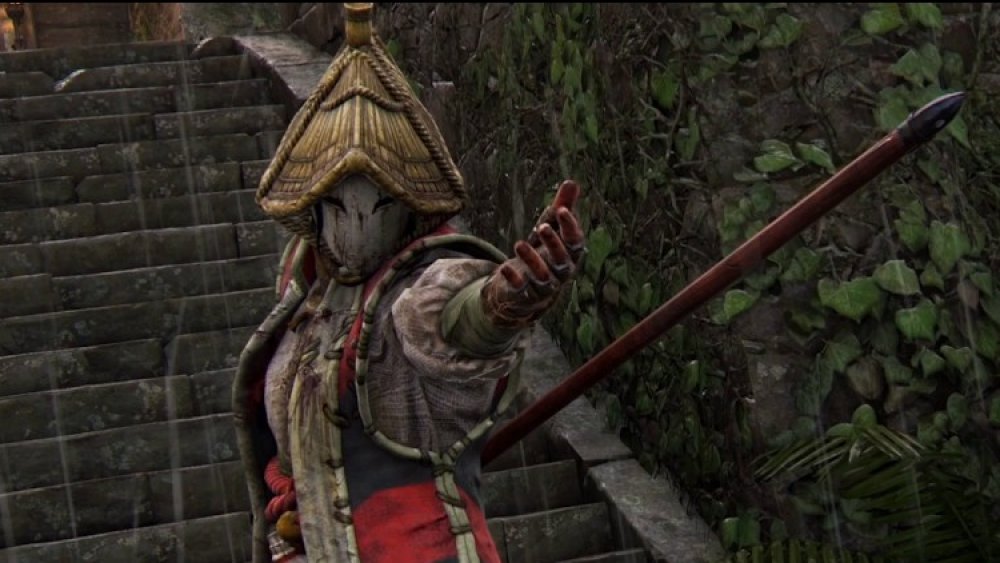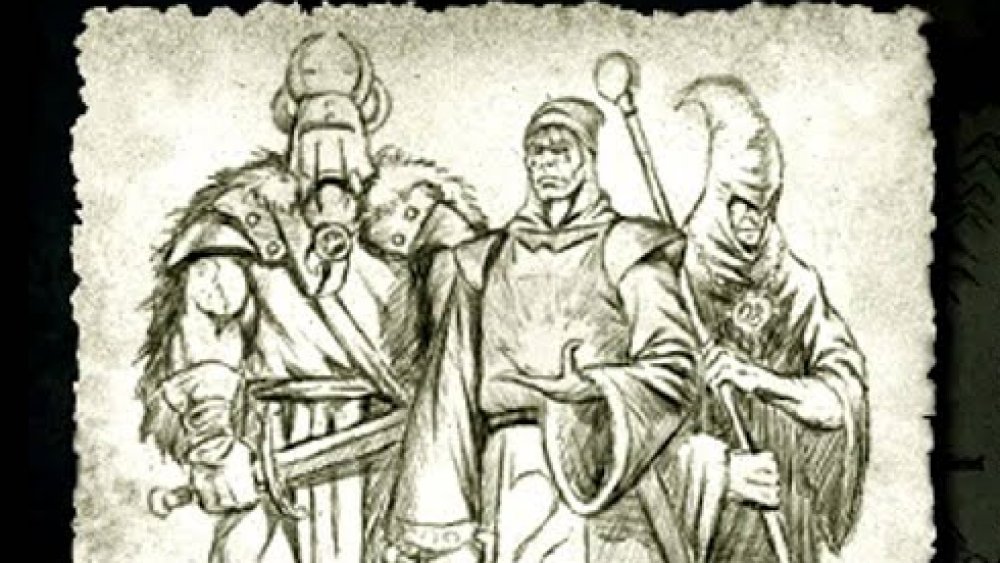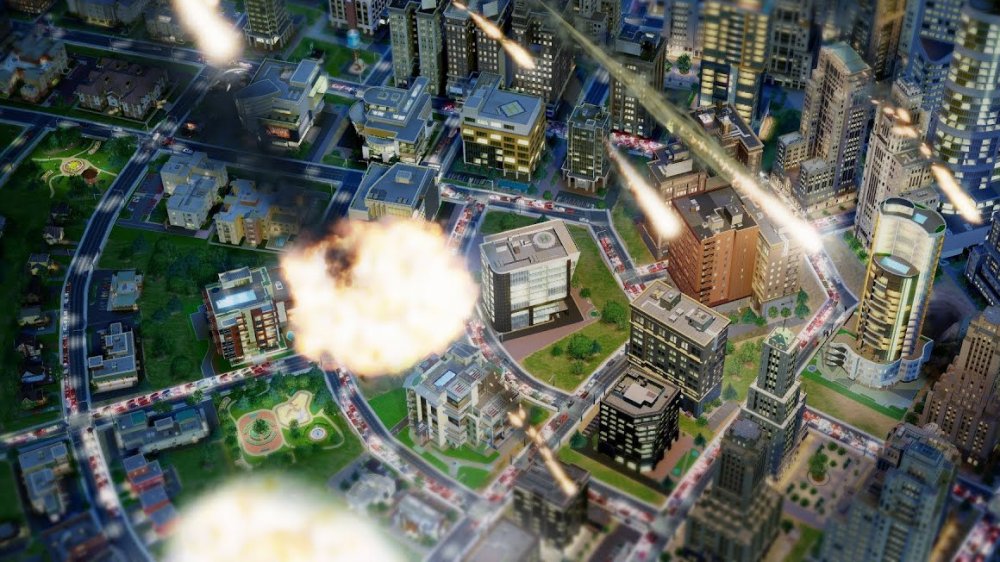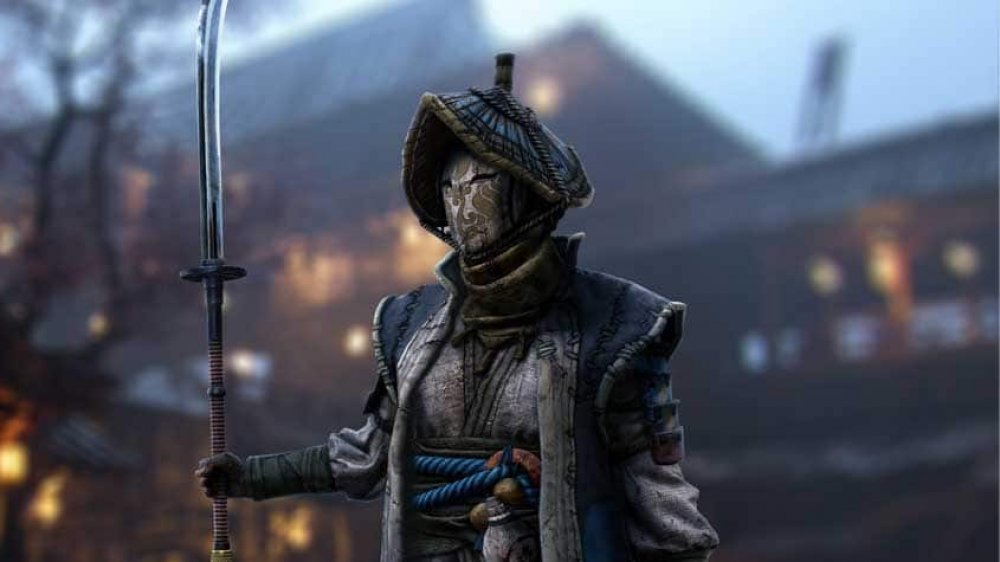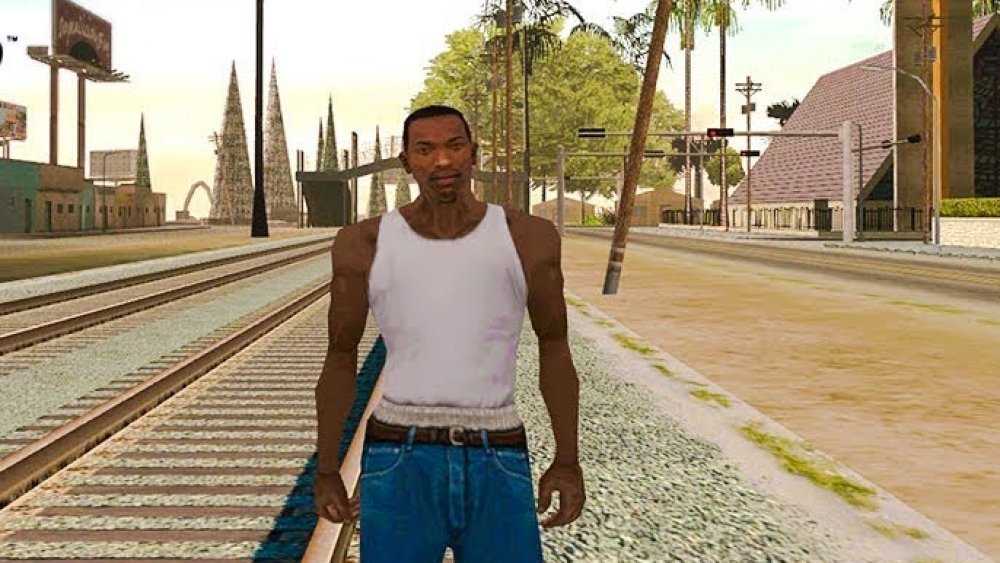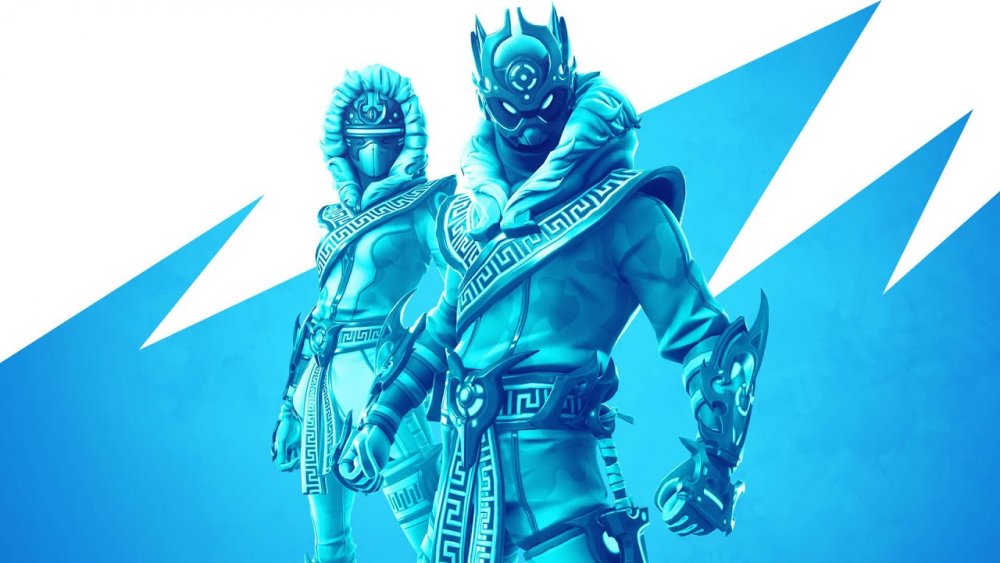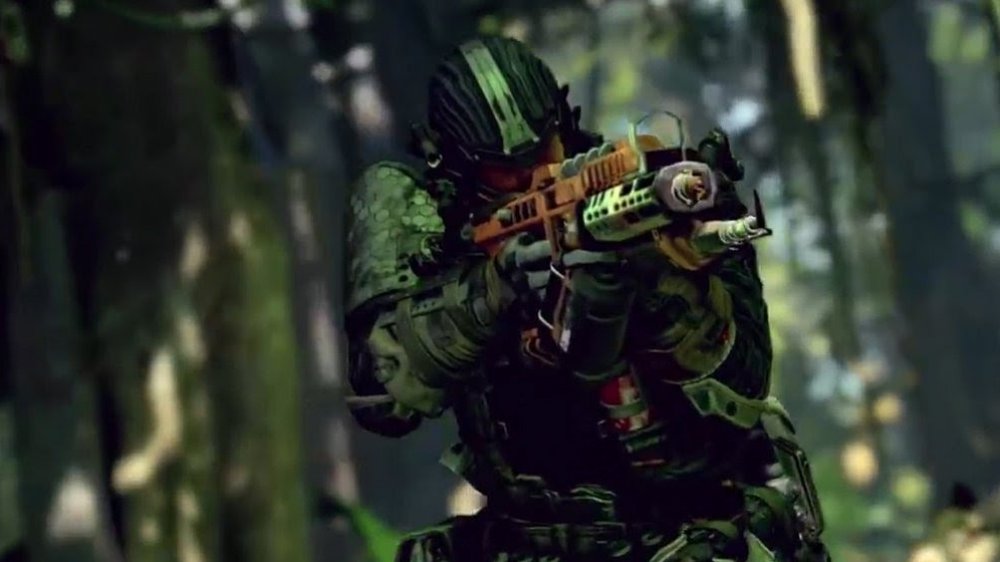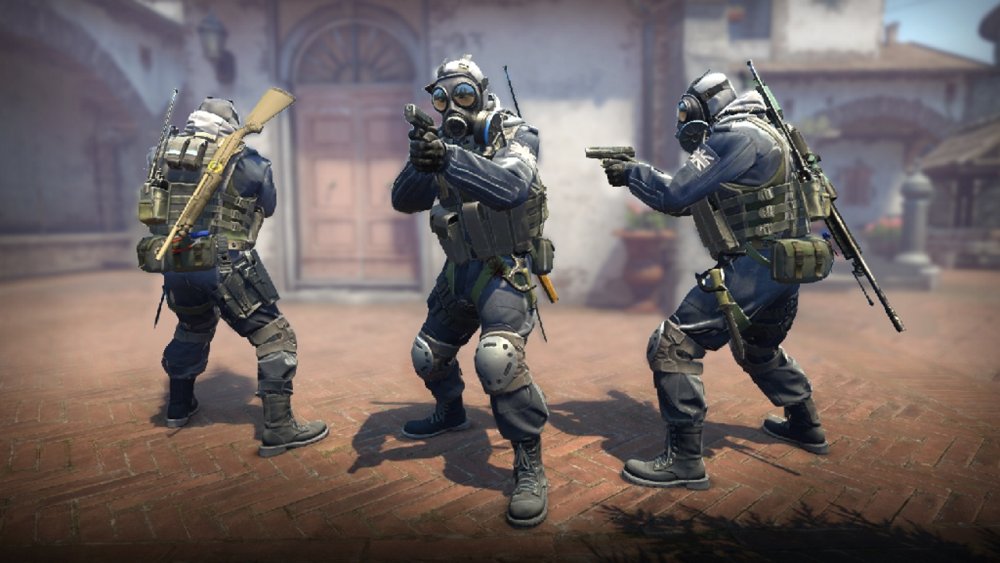The Most Expensive Bugs In Gaming History
Bugs are a simple fact of gaming life. As games become ever larger and more complex, it becomes harder for programmers to find and squash them all. Many bugs are harmless. Some are actually a lot of fun to play with, while others prove unintentionally terrifying. Certain bugs, though, are downright game-breaking.
In the right — or wrong — situation, a bad enough bug can be a problem for more than just the player. Some have even led to pretty big financial losses like bad sales, lost or forfeited tournaments, and even hefty lawsuits. There's clearly more to video game bugs than some glitched out faces.
The gaming industry isn't always fun and games. In fact, gaming is big business these days. As more and more money goes into the industry, mistakes become increasingly devastating for players and developers alike. Whether they risk games with enormous production costs not turning a profit, or cause esports pros to give up their share of some truly insane prize pools, bugs can come with a shocking cost.
With that in mind, take a look at some of the most expensive bugs in gaming history.
Myth 2's uninstall bug wiped hard drives and profits
Myth 2: Soulblighter was a real-time strategy game developed by Bungie and released in 1998. The team pushed hard to have it out in time for Christmas. They didn't quite succeed, but managed to get it out the door for the post-Christmas rush. However, there was a serious problem: if the game installed in the wrong place, it took other files on the hard drive with it when uninstalled. Fixing this issue cost Bungie an estimated $800,000.
Fortunately, only one person ever fell prey to the uninstaller bug. After learning about it, Bungie's programmers quickly found and fixed the overeager uninstall code. Unfortunately, there were already about 200,000 copies of Myth 2 out in the world (though thankfully not in homes yet).
At this point, the developers had two choices: ignore the problem and hope it never came back to bite them, or issue a recall and send out updated CDs with the fixed uninstaller — remember, this was in the days before hotfixes. Bungie went with the second option, and managed to get updated CDs into every store carrying Myth 2 before it officially went on sale. Taking such a big financial hit must have been upsetting for the team, but not as much as the idea of hurting their customers.
2013's SimCity led to disaster
The 2013 revival of SimCity was, according to many reviewers and players, an already-lackluster game. It was further hurt by bugs and glitches. While it's unclear how much money this disastrous game lost, it may have cost developer Maxis everything; just two years after SimCity released, the studio shut its doors for good.
Publisher Electronic Arts did not provide a specific reason for the closure, just that it was "consolidating Maxis IP development" and folding the brand into its other studios. However, journalists pointed toward the botched 2013 SimCity release as the likely culprit. While the Maxis name would continue to be attached to future Sims content, the physical studio shut down in March 2015.
Among its man problems, SimCity required a constant internet connection to play, even on the single player mode. That meant anyone without a stable internet connection was out of luck. To make matters worse, EA's servers simply couldn't handle the load. This led to laggy and unstable sessions (if you managed load in at all). These problems made SimCity nearly unplayable.
However much money these bugs cost, it was evidently more than Maxis had, and it spelled the end for the once-beloved studio.
For Honor didn't live up to its name
Given the name of the game, it might come as a surprise that the 2017 For Honor PC hero series was won using an exploit. "Unlock tech," as the bug was called, made attacks unparryable if the attacker broke their lock on the opponent at just the right time. Player Jakub Palen, who goes by "SB.Alernakin," spammed unlock tech and cruised to an easy victory in the final round of the tournament, potentially costing his opponent a share of the $10,000 prize pool.
As you might imagine, unparryable attacks are a huge advantage in what was meant to be a skill-based dueling game. In particular, the bug made the Nobushi — who fights with a long polearm, and whose greatest weakness is getting parried — nearly untouchable. Adding insult to injury, Palen said after the tournament that he "didn't think it would be this easy." The statement was proof of just how overwhelming the unlock tech bug was.
Creative director Roman Campos Oriola warned Palen he might soon "have to change his playstyle." Indeed, only two days later Ubisoft rolled out a massive update that patched out the unlock tech, among other changes to the game. However, it was too late for Bandanaa and the other players in the tournament, who would have to wait until the next hero series to have an honorable contest.
The Hot Coffee lawsuit that ended in a $20 million settlement
The Grand Theft Auto series is known for its extreme violence and innuendo. However, Grand Theft Auto: San Andreas took it a step farther, leading to a class-action lawsuit that cost Rockstar's parent company Take-Two Interactive a whopping $20 million.
Rockstar apparently programmed a sexually explicit mini-game into San Andreas, which would allow main character CJ to go into his girlfriends' homes and have intercourse with them. For whatever reason, Rockstar decided not to include the mini-game after all, opting instead for a quick cutaway and some very muted, though suggestive, sounds. However, instead of taking it out completely, programmers left in the completed code but gave players no way to access at.
That is, until June 2005 when PatrickW released a mod called "Hot Coffee" that let players experience the mini-game in all its crudely rendered glory. Rockstar's programming and PatrickW's mod caused the game to lose its M (Mature) rating and be re-rated as AO (Adults Only). It also subjected Take-Two Interactive to the aforementioned lawsuit and the $20 million settlement.
In August 2005, Rockstar released a patch that blocked off the sexual mini-game, even if the Hot Coffee mod were installed. Future releases of San Andreas also did not include the code for the mini-game, allowing those versions to keep its original M rating.
Fortnite's Winter Royale scoring glitch left players cold
Fortnite's 2019 Winter Royale was reportedly spoiled by a scoring glitch that gave some players a huge advantage. With an enormous $23 million prize pool up for grabs, players were taking any edge they could get, and many took advantage of what came to be known simply as the "point bug." Their more honorable opponents, in some cases, lost out on thousands of dollars apiece.
The Winter Royale was meant to track player points and match up similarly ranked players against each other. Players quickly realized that, due to a bug in the programming, their points would reset to zero when they switched regions and take 24 hours to display correctly again. That left unscrupulous competitors with a massive window to keep playing in low-ranked, presumably easier matches. By repeatedly switching regions while competing, these players were able to rack up easy points and rocket ahead, leaving their opponents out in the cold.
It wasn't a great look for one of the biggest esports communities in the world, and many pros were furious about the scoring glitch — understandably so, with $23 million at stake. There has been no further word about this glitch one way or the other. However, it's worth noting that the 2020 Fortnite World Cup was cancelled "due to the limitations of cross region online competition," which might be a roundabout way of referring to the Winter Royale debacle.
Team OpTic lost $12,000 for allegedly using an exploit
Some flawed coding in PlayerUnknown's Battlegrounds allowed players to see and move through solid objects like they weren't there. This bug ended up costing Team OpTic about $12,000.
Player Ian "Bahawaka" Crowe allegedly used the glitch during a 2018 PUBG invitational. Tournament officials ruled after the fact that Crowe's use of the exploit invalidated OpTic's win in that round, which caused its final ranking in the tournament to drop from second to fifth, and its winnings to drop from $12,000 to nothing.
The exploit and the ruling caused quite an uproar. The tournament officials stood by their decision, as it was clearly stated in the rules that "intentionally changing your character's angle to look through a texture or object is prohibited." Bahawaka himself insisted that it had been an accident, and that seeing through that particular object didn't give him an advantage at the time.
Team Liquid's Scoom responded to his claim by demonstrating the exploit, showing that it required a very specific series of actions that were unlikely to have been done by accident. Others simply mocked the programming that made it possible in the first place.
FaZe Clan lost the Black Ops 4 glitch war with $800,000 on the line
FaZe Clan got knocked out of a Call of Duty World League tournament by Luminosity Gaming, despite video evidence that it won the match. A known Black Ops 4 bug that registers kills before point captures lost FaZe the game and the tournament, significantly hurting its league standing. Luminosity would go on to tie for 7th in the World League and take home $50,000 in prize money, while FaZe — which had once been the favorite to win — tied for 13th and only won $25,000.
It appears FaZe's ZooMaa captured the control point, which should have given FaZe the win in that match. However, a split-second later, Luminosity's Slacked killed the two remaining FaZe players, causing Black Ops 4 to register a win for Luminosity. Even though recordings of the match clearly show ZooMaa being awarded points before Slacked, tournament officials washed their hands of the matter and said that the game's decision was final.
There's no way of knowing how FaZe would have placed without this bug, and thus no way of knowing exactly how much money the team lost to it. However, given that FaZe was the fan-favorite to win and 1st place took home a whopping $800,000, it's fair to say that it could have been quite a chunk of change.
Fnatic went out of bounds and forfeited its shot at a $250,000 prize pool
During Counter-Strike: Global Offensive's $250,000 DreamHack Winter tournament in 2014, esports team Fnatic used a boost exploit to get one of its team members into an area of the map that shouldn't have been accessible. From that area the player could see and shoot at the entire map, an advantage that carried Fnatic to ten straight wins against opponents LDLC.
The boost exploit involves teammates jumping on each others' shoulders to bounce up into areas that they normally couldn't reach, and that's how Fnatic got one of its players up on top of the arena. The tournament's rules didn't explicitly forbid what Fnatic had done. On the other hand, the previous year's rules had stated that pixel-walking (basically, standing on invisible ledges) wasn't allowed, and the exploit clearly gave Fnatic an unfair advantage.
Since there were no grounds to directly strip Fnatic of its win, judges decided that a rematch was the only fair option. Fnatic declined, saying the match had already taken away too much from "the joy and excitement that a CS:GO Major should provide the community." Whether out of genuine love for the game and its community, or to save face after a controversial match, Fnatic forfeited the game — and the chance at prize money.

